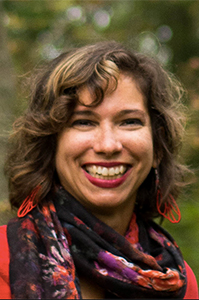
Lisa Erdman, PhD
Media Consultant
Department of Public Health, University of Helsinki, Finland
Dates of Visit: October 18 – December 17, 2019
Purpose of Visit
During her visit to CHES, Dr. Erdman will be meeting with CHES faculty and others to learn more about arts-based methods in medical education, and to explore ways in which humor and media arts may be used to facilitate dialogue about medicalization and ethics of care.
Biography
Lisa Edman completed a Doctor of Arts (DA) degree in 2019 at Aalto University in Helsinki, Finland. She has taught art and media courses at universities within the U.S. and Finland. Lisa has also worked as a designer of medical communications for Harte-Hanks Interactive Inc., and Ciegus Digital Health. She currently serves as a media consultant assisting in curriculum design for courses within the Department of Health at University of Helsinki.
Lisa’s doctoral art production entitled Finnexia®, took the form of an advertisement campaign for a fictitious medication that helps people learn the Finnish language. The project was presented as a three-day performance intervention in the Helsinki Railway Station. The primary aim of Finnexia was to create a space for public dialogue about language learning and cultural experience in Finland. The project also presented a satirical commentary on overmedicalization. View the Finnexia website here. View the Finnexia medical animation here.
Lisa’s dissertation is entitled, Performing false hope: Ethical outcomes of fictitious pharmaceutical advertising as a public art intervention. The thesis explores the unexpected ethical issues and emotional responses that arose from the Finnexia intervention, in which some audience members believed the medication to be a real product. View the dissertation PDF here.
Lisa is interested in exploring how the use of satirical humor, performance methods, and media art practice may serve as a catalyst for critical discussion about medicalization and its relation to ethics of care. Here, the element of humor may serve as a facilitator for students to produce their own narratives in response to medical advertising and its potential influence on patient care, particularly in the prescribing of medication. Combining healthcare training with such arts-based methods addresses emotional and psychological dimensions of healthcare that may be more effectively approached in multisensory formats.